River Of Blood: The political drama unfolded across Kolkata during recent Eid celebrations when controversial claims about animal sacrifice created major tensions. Two major political parties began trading harsh accusations after disputes arose regarding religious practices in the city.
The BJP made serious allegations about excessive animal sacrifice during Eid festivities. Party leaders claimed that blood from sacrificial animals created disturbing scenes throughout various neighbourhoods in the metropolitan area.
River Of Blood: What Started This Whole Mess
Local residents reported seeing large amounts of blood flowing through streets during Eid celebrations. Some people shared photos on social media showing red-stained roads, which quickly became viral content across multiple platforms.
TMC leaders immediately pushed back against these claims with equal force. They accused opposition parties of trying to create communal tensions during important religious festivals.
The controversy began when certain areas experienced heavy animal sacrifice during Eid al-Adha celebrations. This religious practice involves families sacrificing goats, sheep, or other animals as part of their faith traditions.
Political Parties Start Fighting
BJP spokespersons held press conferences criticizing what they called poor waste management during religious festivals. They demanded better cleanup systems for animal sacrifice waste in urban areas throughout West Bengal.
Meanwhile, TMC representatives fired back with their own accusations. They claimed BJP leaders were deliberately trying to create division between different religious communities in the state.
The war of words escalated when both parties began organizing separate media events. Each group tried to prove their version of events was more accurate than their opponents’ claims.
Here’s what each party said:
- BJP accused local authorities of failing to manage animal waste properly
- TMC blamed opposition parties for spreading fake news about religious practices
- Both sides demanded investigations into the other party’s conduct
River Of Blood: Religious Leaders Get Involved
Several prominent Islamic scholars entered the debate to clarify proper sacrifice procedures. They explained that responsible animal sacrifice includes proper waste disposal methods to maintain community cleanliness.
Local mosque leaders emphasized that their faith teaches respect for cleanliness in all religious practices. They urged followers to ensure proper cleanup after completing their sacrifice rituals.
Some religious authorities also criticized political parties for using sacred traditions as campaign ammunition. They requested that politicians avoid creating unnecessary drama around peaceful religious celebrations.
River Of Blood: What Really Happened During Eid
Eyewitness accounts varied widely depending on which neighbourhood people visited during the festival. Some areas reported minimal issues with animal waste, while others experienced more significant cleanup challenges.
City sanitation workers faced increased workloads during the festival period. Municipal authorities had to deploy extra cleaning crews to handle additional waste from animal sacrifices throughout the metropolitan area.
Local news outlets documented both clean areas plus problematic locations where blood pooled on streets. These mixed reports made it difficult to determine the actual scope of any problems.
Social Media Makes Things Worse
Photos showing blood-stained streets spread rapidly across Facebook, Twitter, plus other platforms. Many users shared these images without verifying their authenticity or providing proper context about the situations.
Some viral posts exaggerated the extent of problems, while others downplayed legitimate concerns about waste management. This created confusion about what actually occurred during the religious celebrations.
Political party supporters used these social media posts to support their preferred narratives. Both sides cherry-picked specific images that seemed to prove their particular viewpoints about the controversy.
Government Response to the Drama
State officials announced plans to improve waste management systems for future religious festivals. They promised better coordination between municipal services plus religious organizations to prevent similar disputes.
The West Bengal government also warned political parties against making inflammatory statements about religious practices. Officials emphasized that creating communal tensions could result in serious legal consequences for party leaders.
Municipal authorities began developing new guidelines for animal sacrifice waste disposal. These rules aim to balance religious freedom with public health concerns in densely populated urban areas.
Key government actions include:
- Enhanced sanitation services during major religious festivals
- Better coordination with religious community leaders
- Stricter enforcement of existing waste disposal regulations
Looking Forward
This controversy highlights ongoing challenges when religious practices meet urban planning realities. Growing city populations create more complex logistics for traditional celebration methods that work fine in smaller communities.
Both political parties need to find better ways to address legitimate public health concerns without attacking religious freedoms. Creating divisive rhetoric around sacred traditions helps nobody in the long run.
The situation also shows how social media can amplify local disputes into major political battles. People should verify information before sharing dramatic claims about sensitive religious or political topics online.



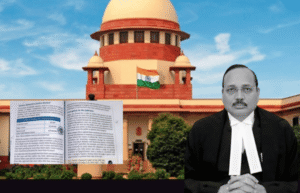
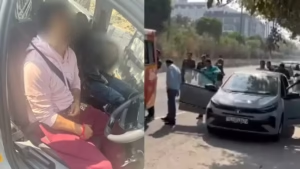
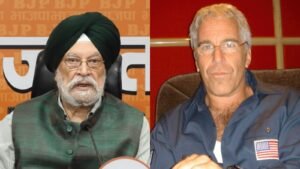
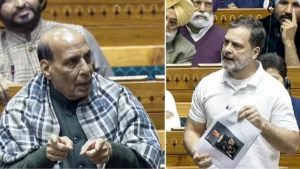
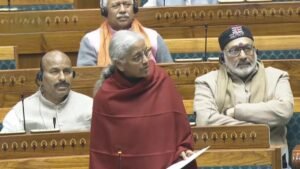
Be First to Comment